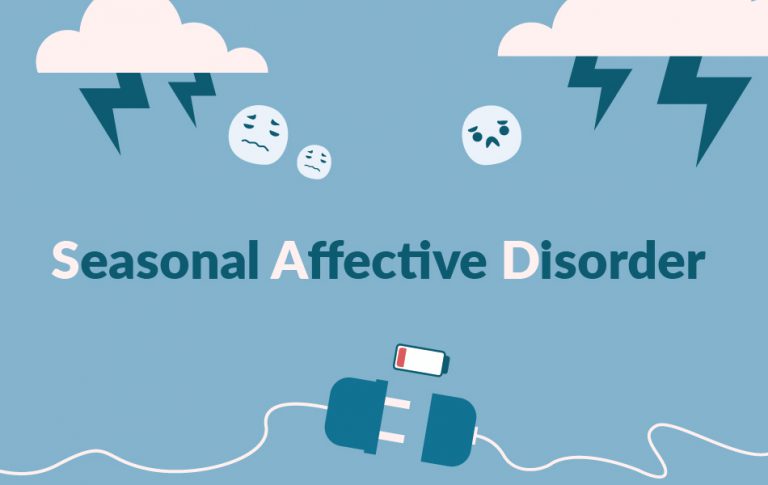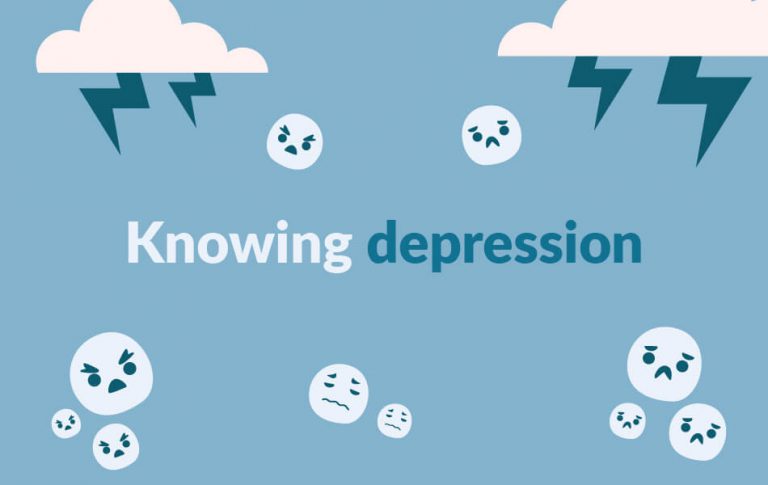Mental health and the quality thereof are unmeasurable for the most part
When you break a limb, you can see the physical break by looking at an X-ray which determines how bad the breakage is. With mental health, there isn’t a machine that can scan the state of your mental health, and it can be hard to express or measure what condition or state your mental health is.
Generally, mental health refers to your emotional and psychological state. Broken down into smaller elements, mental health is all about how you feel, think, behave and react. When your mental health declines, it can affect your daily living and formal and casual relationships. Preserving your mental health involves balancing life and responsibilities that promote psychological resilience.

In this article, we look at general mental health. We provide some insights into how you can achieve a better mental health state.
Early signs that your mental health is deteriorating
South African Depression and Anxiety Group released statistics indicating that 1 in 6 South Africans suffer from anxiety, depression or substance abuse conditions. And this doesn’t include other severe conditions such as schizophrenia or Bipolar disorder. Furthermore, studies revealed that over 40% of people living with HIV-AIDS in South Africa already have a diagnosable mental health condition.
Considering these statistics, it is estimated that roughly 2.2 million people out of the 5.7 million living with HIV need drastic mental health intervention, which they are unfortunately not getting. Considering these stats, it is evidently clear that South Africa has a significant mental health crisis on its hands.
When it comes to the prevalence of mental health conditions, mental health doesn’t discriminate, and it could affect anyone from every walk of life. Not sure if you or someone you know suffers from mental health issues? Below we list early signs and symptoms that could be warning signs to look out for.
- Binge eating or not eating at all
- Sleeping too much or too little
- Pulling away from social activities and avoiding people
- Having very low or no amounts of energy
- Feeling numb or like nothing matters anymore
- Having unexplained aches and pains
- Feeling helpless or hopeless
- Smoking, drinking or using drugs regularly
- Feeling abnormally confused, forgetful,
- Or feeling on edge, angry, upset, worried, or scared more than often
- Yelling or picking unnecessary fights with family, friends or co-workers
- Experiencing severe mood swings that cause relationship problems
- Being plagued by persistent thoughts and memories, you can’t get out of your head
- Inability to perform daily tasks

Preventing common mental health illnesses
As the saying goes: prevention is better than cure. But what does it mean to prevent mental health illnesses? The development of mental health disorders can originate from several factors that are unknown for the most part. In some cases, it is hereditary, meaning it runs in your family, and in other cases, it could stem from biology, trauma or environmental stress.
With that being said, it is essential to note that not all mental disorders can be prevented, although the tips below still apply in preventing or stopping a mental health illness from developing or worsening with time.
There are, however, preventative measures you could take, but it will mean different things to different people depending on their history. Below are some ways people have found to stay mentally healthy.
Connect with other people
Since the dawn of time, people have needed human interaction. Connecting with other people could help strengthen your sense of belonging and allows you to share positive experiences. It also serves as a support system which helps when you’re going through an emotional slump. Take time each day to connect with people or arrange a specific day for social interaction.
Get physically active
It’s no secret that when the body engages in physical activity, the brain releases healthy chemicals to uplift any mood. In conjunction with uplifting your mood, physical activity also builds healthy self-esteem. It releases dopamine which is your achievement hormone.
Learn a new skill
Studies have shown that learning a new skill can also improve your mental health. As you continue to learn the skill, your self-esteem increases. It helps build a sense of purpose, which all humans inherently desire. A new skill could also lead you down a path where you meet and engage with like-minded individuals.
Give to others
The act of giving to those in need and showing them kindness also improves your mental well-being. This small act can create positive feelings and a deep sense of reward. It also gives a feeling of purpose and enhances self-worth. And during the process, you connect with like-minded people, which positively influences your life.
In conjunction with giving back to others, you can try and practice gratitude daily. Make a list of everything you feel grateful for and reflect on how it makes you feel. Giving to others doesn’t necessarily have to include providing physical objects. You could give someone your time, love, or even a simple compliment.
Practice mindfulness
Mindfulness allows you to be present while paying more attention to your environment and surroundings. Practising mindfulness helps you enjoy life more, and with time you will understand yourself better. Some people have reported that being mindful has improved their quality of life and how they approach difficulties.
How to tell if your mental health is declining
Sometimes mental health symptoms can surface unknowingly so. Therefore, it is essential to track the state of your mental health. If you leave your symptoms untreated, they may worsen over time. If you suspect that your condition is deteriorating, we suggest filling out our basic mental health quiz. Followed is a list of symptoms that could indicate that your mental health is declining.
- Depressed moods
- Lack of appetite
- Loss of social interest
- Fatigue
- Agitation
- Changes in your sleeping pattern
- Increased irritability
- Problems with concentration
- Physical pain in the neck or back from anxiety
- Suicidal thoughts
The power of meditation
If you are new to meditation, you might find it difficult to silence your mind when engaging in a meditation practice. With consistent practice, you’ll learn to switch off during the session, which will contribute to a calmer state of mind. Somedays, you might find it easy, and other days it might be hard to meditate, and that’s okay.
There are several meditation practices that are available to you. You could, for instance, do a gratitude meditation where you solely focus on everything that you are grateful for. And meditation has several positive outcomes on the brain. With time, you will notice increased concentration, mental alertness, and self-awareness.
Meditation can also lower anxiety and stress, leaving you peaceful after your meditation session. If you go on Youtube and search for guided meditations, you will find plenty of sources to choose from.

When to seek help
Due to mental health stigma, people tend to avoid getting the help they so desperately need. If you notice any symptoms or worsen your current symptoms, we suggest you make an appointment with a mental health care specialist. At ZwavelStream Clinic, we welcome anyone. We are fully committed to helping you regain your sense of purpose to lead a healthy and fulfilling life.
Take the mental health quiz for a quick and easy way to determine whether or not you should see a health care practitioner.
Our approach to mental health
Often, mental health is met with fear and misunderstanding. Unfortunately, there is still a massive misconception and stigmatization surrounding mental health in general. That’s why ZwavelStream clinic went above and beyond by creating a destigmatized environment where patients can get the medical help they need in a judgment-free setting.
We treat several mental conditions such as:
- Depression
- Anxiety Disorders
- Bipolar Disorders
- Personality Disorders
- Adjustment Disorders
- Post-Traumatic Stress
- Work & Stress-Related Problems
- Self-harm & Adjustment Difficulties
- Bereavement & Loss of a Loved One
- Behavioral Problems
- Dealing with Difficult Life Problems such as Divorce
- Chronic Pain Management
Our holistic approach to mental health is tailor-made to the needs of each patient so that they feel restored to meet life’s challenges with renewed confidence. Our specialist staff comes with decades of experience and world-class methodologies to ensure that patients are given the best treatment according to their individual needs.
We use mixed therapeutic procedures and treatment programs to help patients on their way to mental wellness. If you suspect that your symptoms are worsening or someone close to you shows signs and symptoms of mental imbalance, we encourage you to reach out for help. Our doors are always open to everyone.







